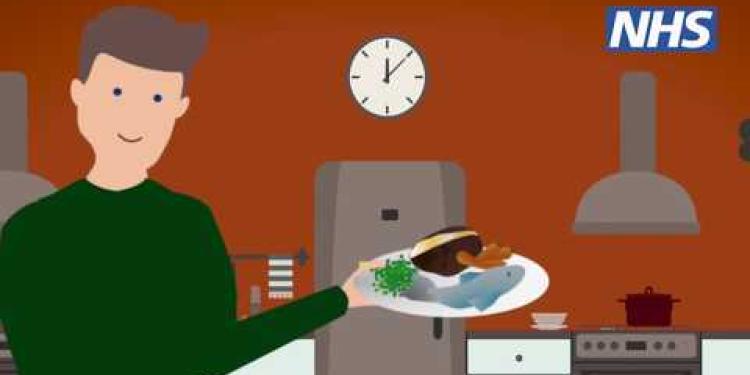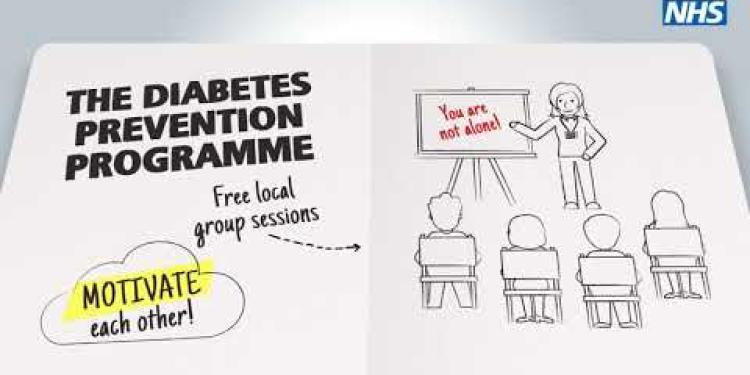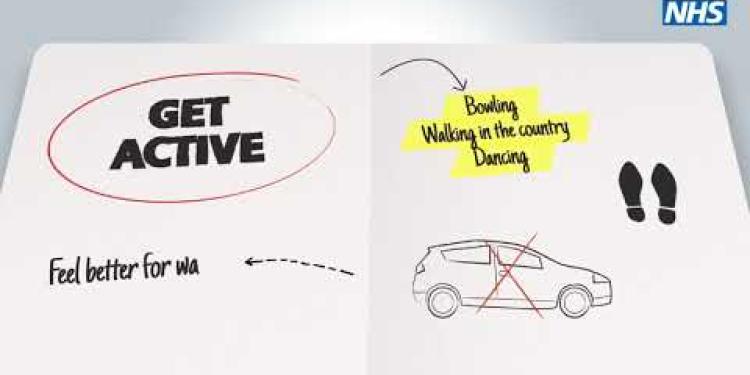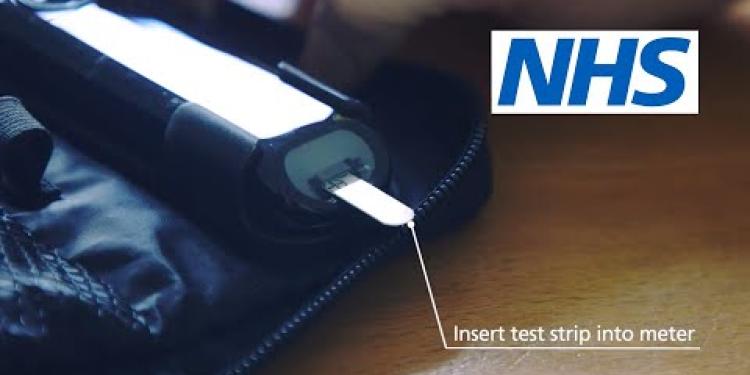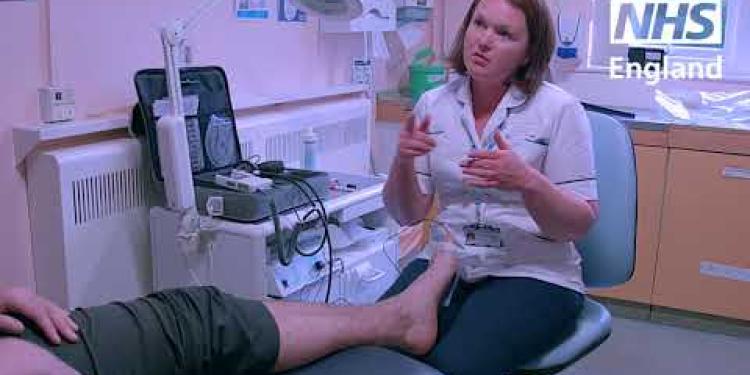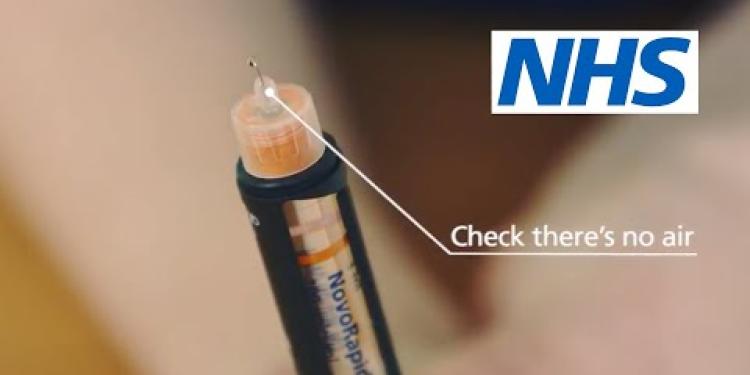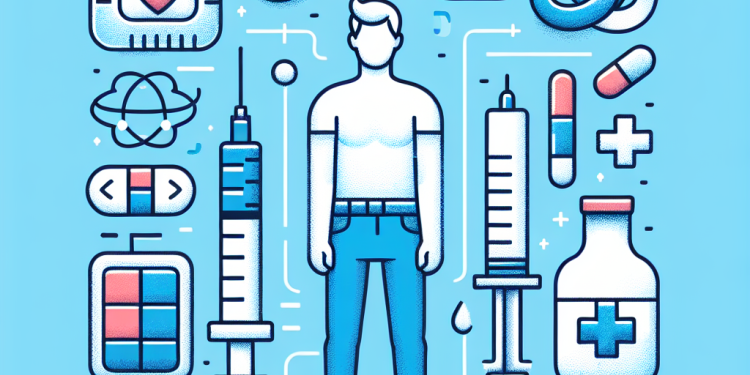Important Information On Using This Service
- Ergsy carefully checks the information in the videos we provide here.
- Videos shown by YouTube after a video has completed have NOT been reviewed by ERGSY.
- To view, click the arrow in the center of the video.
Using Subtitles and Closed Captions
- Most of the videos you find here will have subtitles and/or closed captions available.
- You may need to turn these on and choose your preferred language.
Turn Captions On or Off
- Go to the video you'd like to watch.
- If closed captions (CC) are available, settings will be visible on the bottom right of the video player.
- To turn on captions, click settings.
- To turn off captions, click settings again.
Find A Professional
More Items From Ergsy search
-
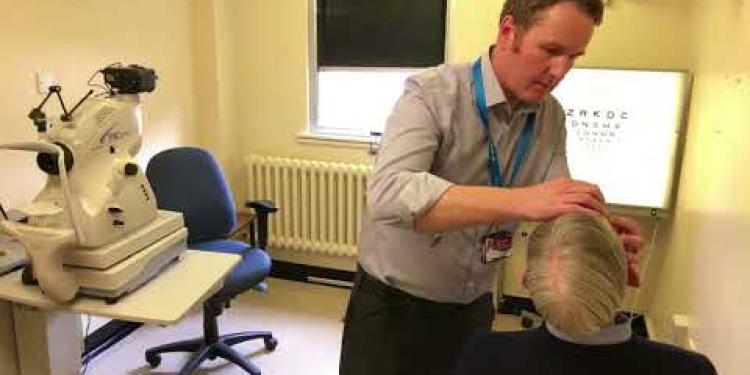
Derbyshire Diabetic Eye Screening - Diabetic Eye Screening
Relevance: 100%
-
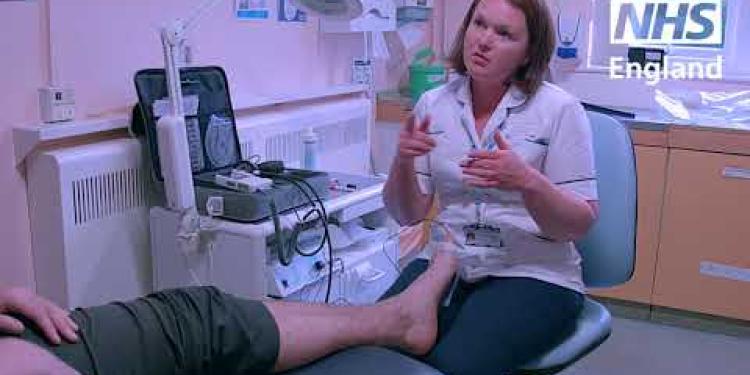
Improving outcomes for people with diabetes
Relevance: 82%
-
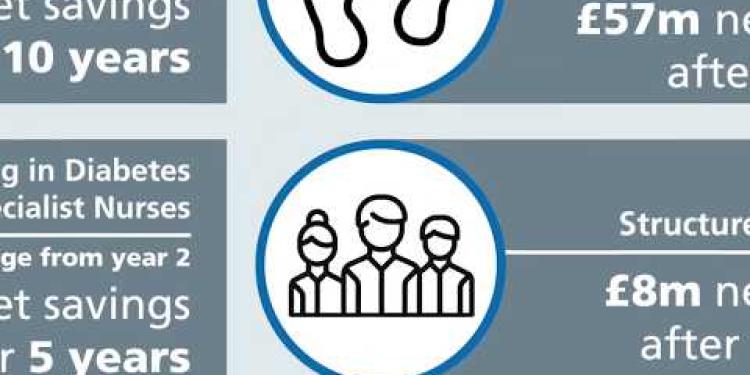
NHS Diabetes Prevention Programme; Preventing Type 2 and improving outcomes for people with diabetes
Relevance: 79%
-
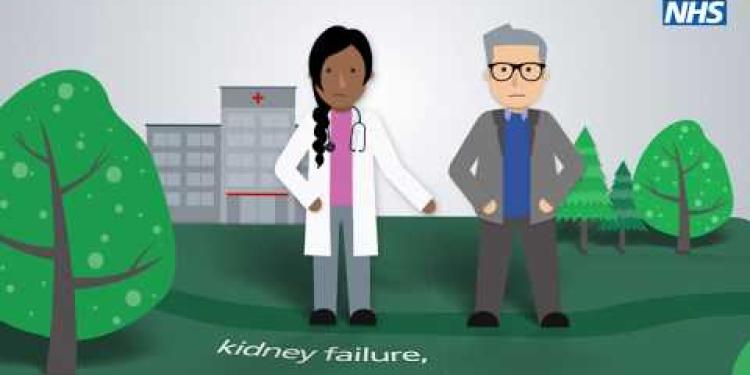
The NHS Diabetes Prevention Programme story
Relevance: 73%
-
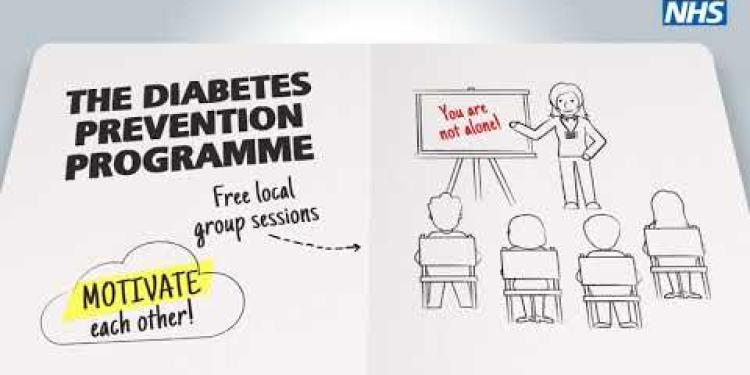
Hansa's story - The NHS Diabetes Prevention Programme
Relevance: 73%
-
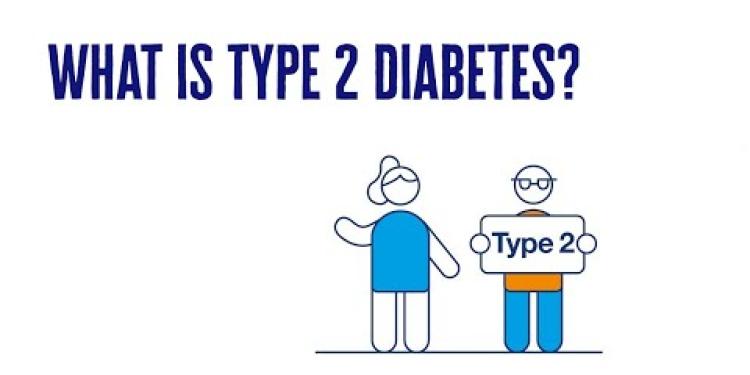
What Is Type 2 Diabetes? | 2 Minute Guide | Diabetes UK
Relevance: 71%
-
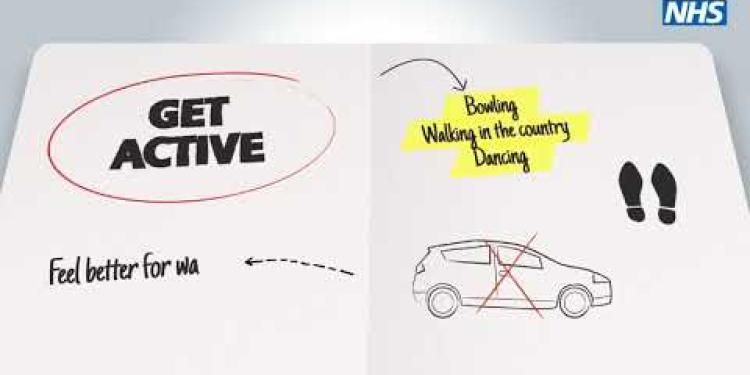
Pam’s story - The NHS Diabetes Prevention Programme
Relevance: 68%
-
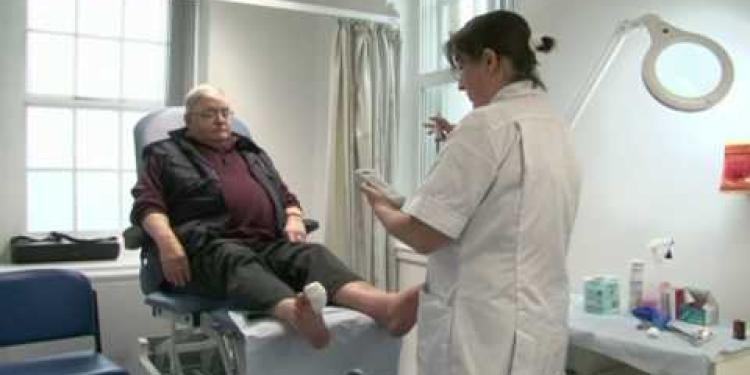
Diabetic Foot Conditions Podiatrist
Relevance: 68%
-
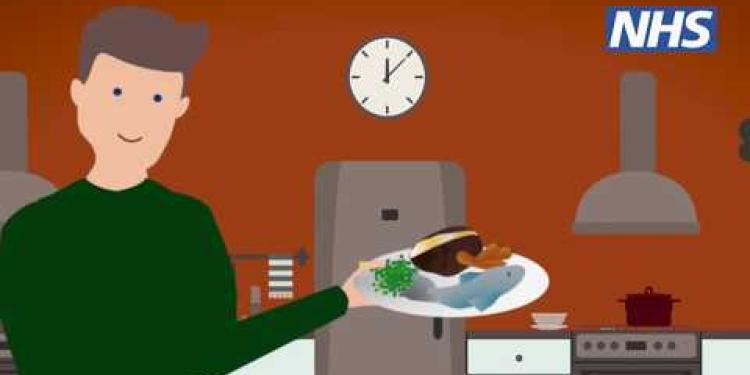
Tom's story (NHS Diabetes Prevention Programme)
Relevance: 64%
-

Type 1 Diabetes supporting adults to manage Type 1 diabetes
Relevance: 62%
-
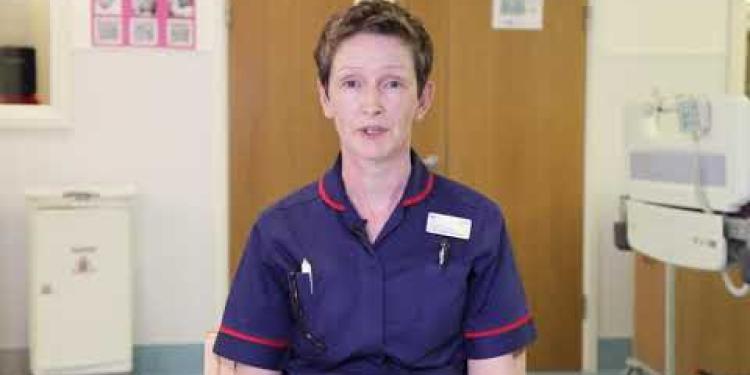
Gestational Diabetes during pregnancy
Relevance: 61%
-
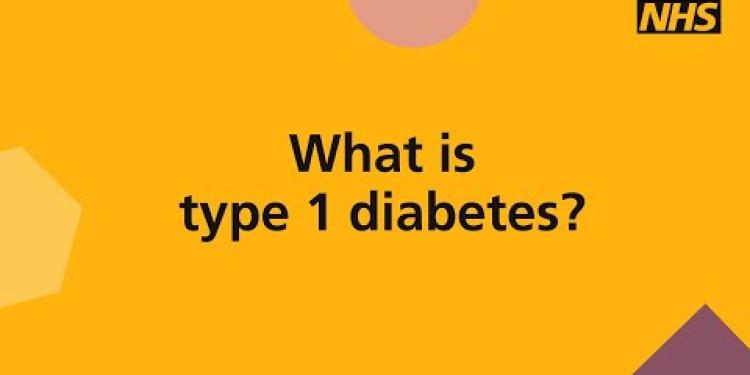
What is type 1 diabetes?
Relevance: 60%
-
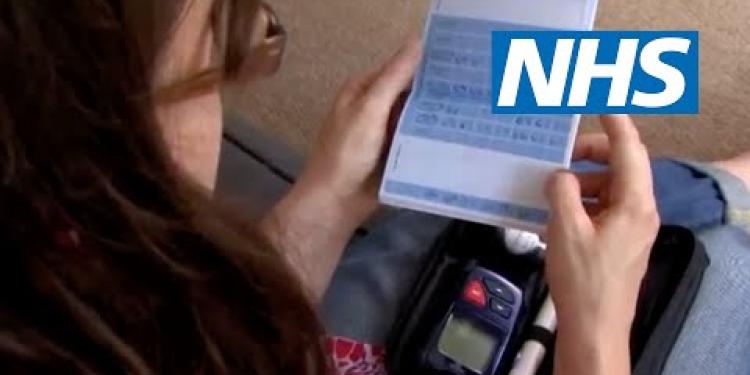
Gestational diabetes | NHS
Relevance: 60%
-

Diabetes Eye Screening
Relevance: 59%
-
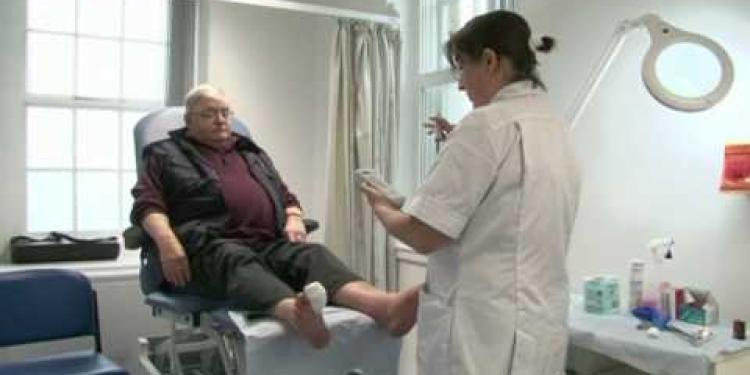
Diabetes Care - Preventing Amputations
Relevance: 55%
-
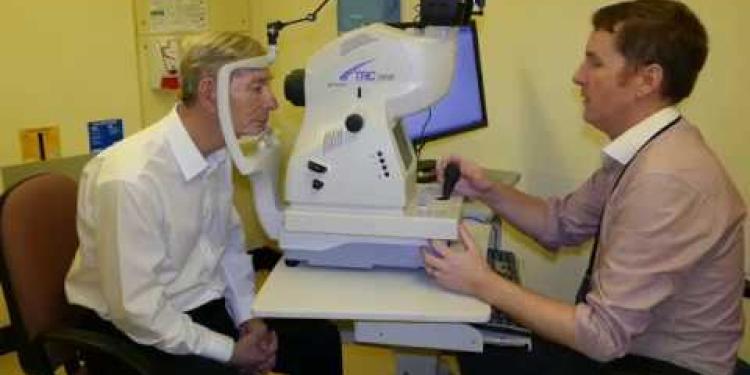
Derbyshire Diabetic Eye Screening - Your Screening Appointment
Relevance: 54%
-

Sarah and Glinys Managing Diabetes into remission Jan2019
Relevance: 51%
-
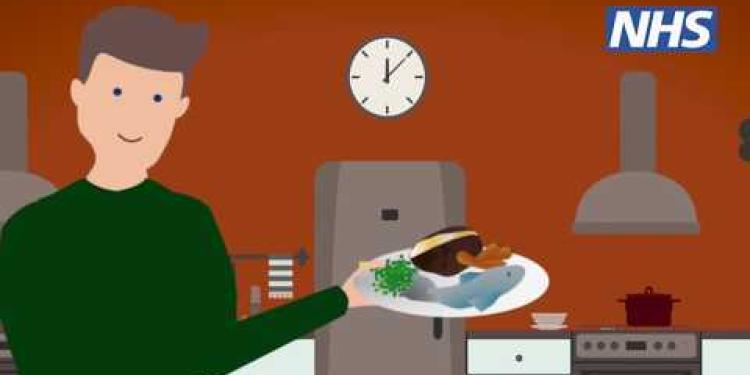
Tom's story (NHS Diabetes Prevention Programme)
Relevance: 50%
-

Preventative Care: What Your Family Needs
Relevance: 45%
-
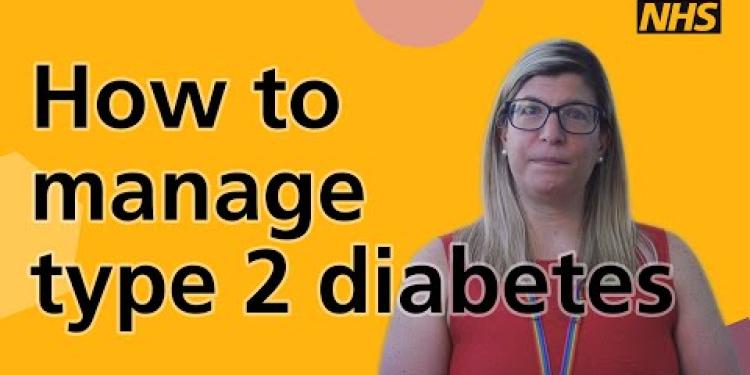
How to manage type 2 diabetes
Relevance: 45%
-
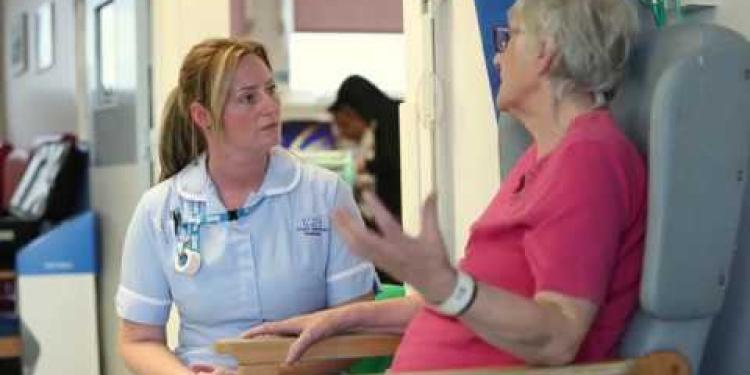
Fallsafe - Put the patient first. Preventing falls in Hospital.
Relevance: 44%
-
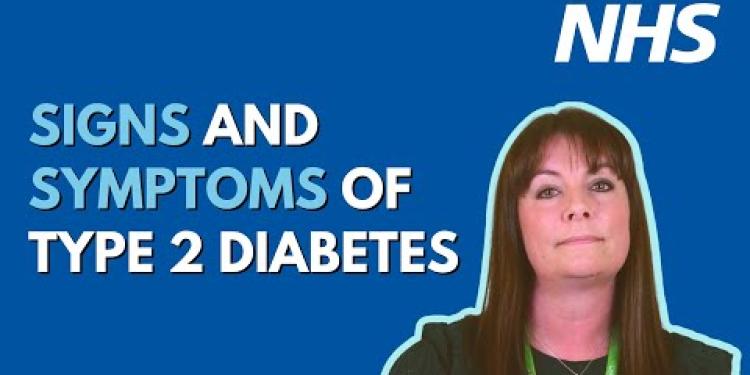
Type 2 diabetes - common signs and symptoms UHL NHS Trust
Relevance: 43%
-
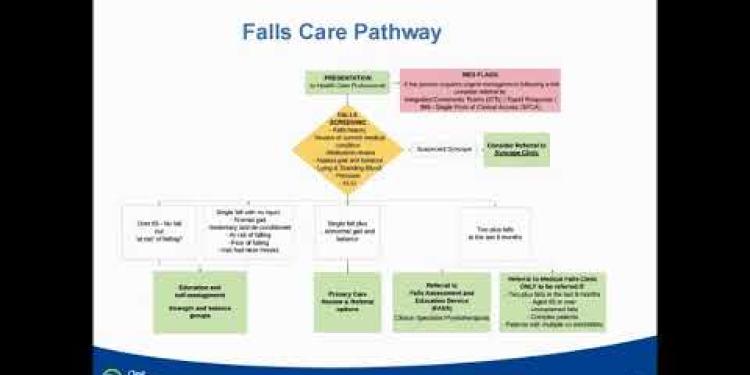
Falls Prevention Podcast
Relevance: 41%
-
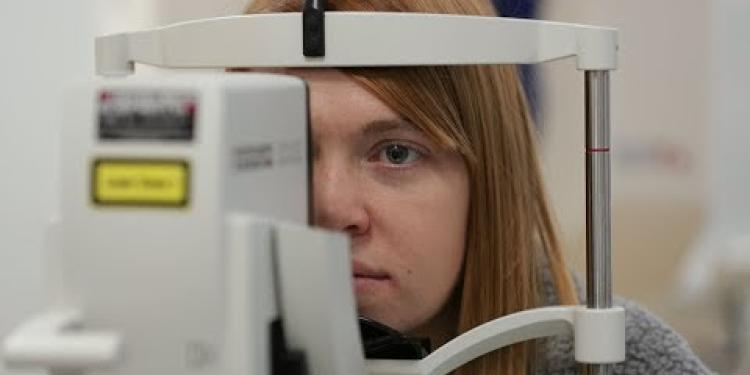
Patient voices in type one diabetes - I would have done things differently.
Relevance: 40%
-
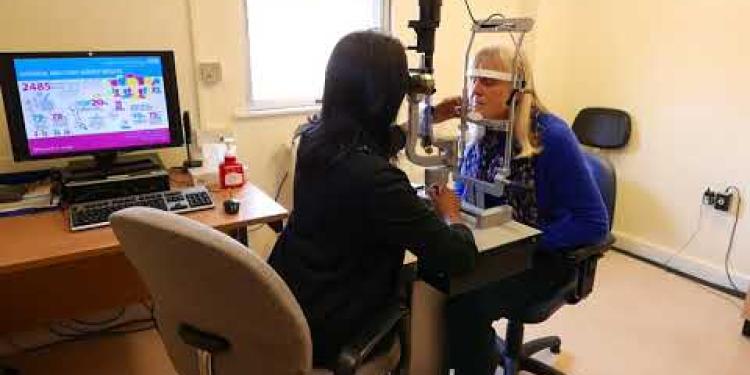
Derbyshire Diabetic Eye Screening - Assessment Clinic Appointment
Relevance: 40%
-

North Yorkshire Diabetic Eye Screening Programme - A day in the life
Relevance: 40%
-

How can obesity be prevented?
Relevance: 38%
-
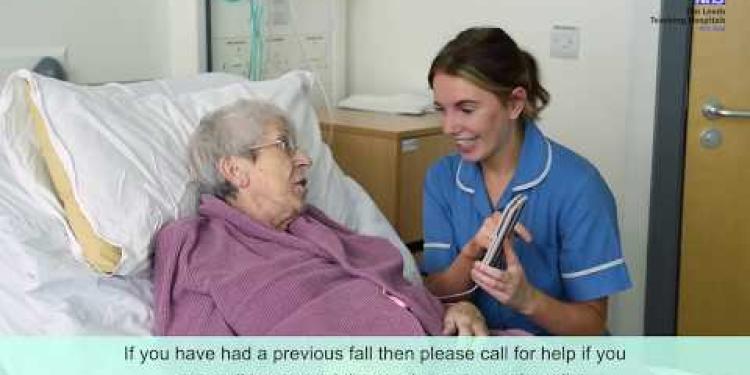
Falls Prevention video for patients attending hospital
Relevance: 35%
-
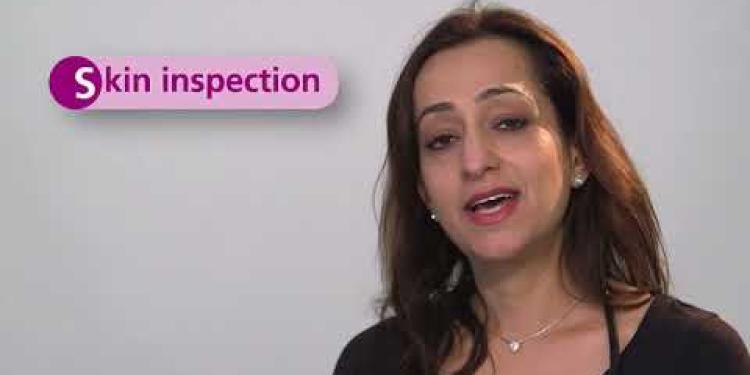
Pressure ulcer prevention: A guide for patients, carers and healthcare professionals
Relevance: 32%
-

Falls and Falls Prevention
Relevance: 31%
-
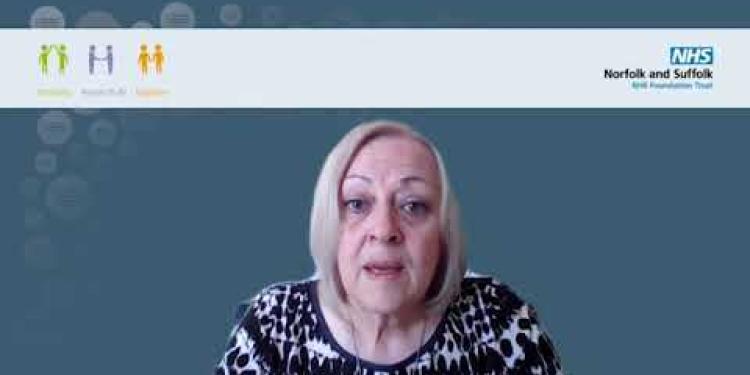
Suicide and Self Harm Prevention Strategy 2023-28
Relevance: 30%
-

SLaM's Suicide Prevention, Learning and Support Strategy
Relevance: 28%
-

NHS Looking after your feet - Podiatrist https://youtu.be/8J1v6K21ykc
Relevance: 26%
-
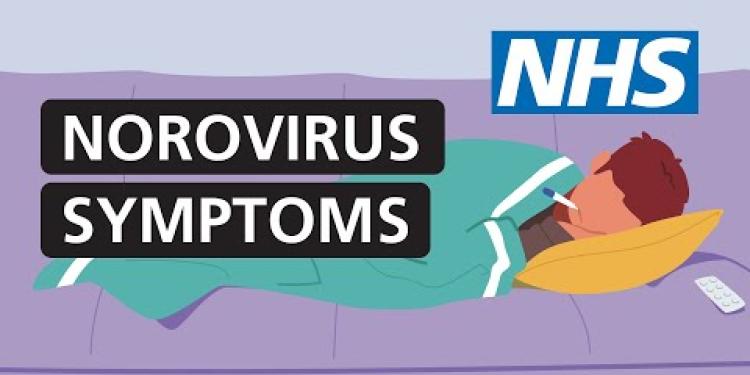
What is norovirus? (Diarrhoea and vomiting bug) | NHS
Relevance: 25%
-

How important is physical activity in preventing obesity?
Relevance: 25%
-

NHS Ayrshire and CVO East Ayrshire - ‘Feet First – Podiatry Services in East Ayrshire’
Relevance: 24%
-
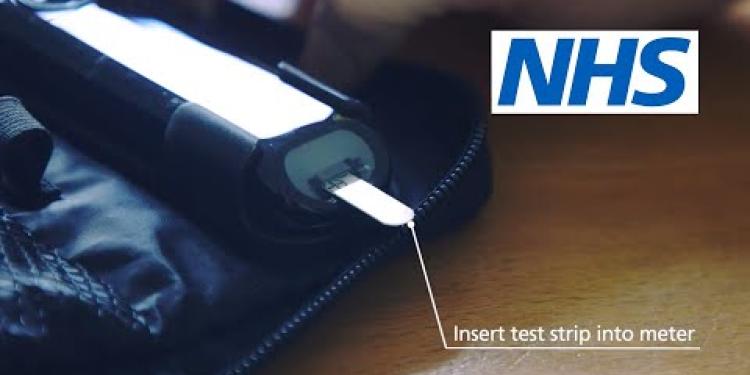
Diabetes: How to check your blood glucose level | NHS
Relevance: 24%
-

Can nettle rash be prevented?
Relevance: 23%
-

Can Alzheimer's disease be prevented?
Relevance: 23%
-

Health Screenings You Should Know About
Relevance: 22%
The NHS Diabetes Prevention Programme Story
Introduction to the NHS Diabetes Prevention Programme
Diabetes is a growing concern in the United Kingdom, with millions of people at risk of developing Type 2 diabetes. To combat this, the National Health Service (NHS) initiated the Diabetes Prevention Programme (DPP) to help prevent individuals from progressing to Type 2 diabetes through lifestyle interventions. The programme focuses on long-term behavioral changes, offering support and education to those considered at high risk.
Implementation and Reach
Launched in 2016, the NHS Diabetes Prevention Programme has rapidly expanded and is now available across England. Those who are identified as having pre-diabetes, based on blood test results, are referred to the programme. Participants are provided with tailored support, which includes advice on healthy eating, physical activity, and weight management, with the goal of reducing the risk of developing Type 2 diabetes.
Steps Involved in the Programme
The DPP involves a series of structured sessions delivered over a period of up to nine months. These sessions are designed to educate and motivate participants in making sustainable lifestyle changes. The programme employs skilled health coaches who work closely with participants to set achievable goals, monitor progress, and provide ongoing support. Importantly, the personalized approach ensures that individual needs and circumstances are considered.
Success Stories and Impact
The NHS Diabetes Prevention Programme has seen significant success since its inception. Studies have shown that participants who complete the programme can reduce their risk of developing Type 2 diabetes by up to 60%. Testimonials from past participants highlight not only the improvement in their health but also the positive impact on their overall quality of life. Moreover, the programme helps to alleviate pressure on the NHS by reducing the future burden of diabetes-related healthcare costs.
Future Prospects
Building on its success, the programme aims to reach even more individuals and improve its effectiveness through ongoing research and development. The focus remains on early identification of at-risk individuals and enhancing the support provided to ensure sustainable lifestyle changes. Efforts are also underway to integrate digital tools and technologies to make the programme more accessible and engaging for participants.
Conclusion
The NHS Diabetes Prevention Programme represents a proactive approach to managing a growing public health issue. By empowering individuals to take control of their health through education and support, it not only improves individual outcomes but also contributes to the overall well-being of the community. As the programme continues to evolve, it holds promise for making a lasting impact on the fight against Type 2 diabetes in the United Kingdom.
The NHS Diabetes Prevention Programme Story
What is the NHS Diabetes Prevention Programme?
Diabetes is a big problem in the UK. Many people might get Type 2 diabetes. The NHS started the Diabetes Prevention Programme to help stop people from getting Type 2 diabetes. The programme helps people make healthy changes in their lives. It gives them support and teaches them how to stay healthy.
How Does the Programme Work?
The NHS Diabetes Prevention Programme started in 2016. It is now available all over England. People who are close to getting diabetes can join. They find out by a blood test. The programme gives them help with healthy eating, being active, and managing their weight. This helps lower the chance of getting Type 2 diabetes.
What Do You Do in the Programme?
The Programme has meetings that last up to nine months. These meetings teach people how to make healthy changes that last. Health coaches help people set goals and keep track of progress. The coaches give support that fits each person's needs.
How Has the Programme Helped People?
The NHS Diabetes Prevention Programme has helped many people. Studies show that people who finish the programme can lower their chance of getting Type 2 diabetes by up to 60%. People say the programme helped improve their health and made their lives better. It also helps the NHS by reducing costs for diabetes care.
What's Next for the Programme?
The programme wants to help more people and get better. They want to find people at risk early and give them more support. They are also looking at adding digital tools to make the programme easy to use and fun.
Final Thoughts
The NHS Diabetes Prevention Programme helps fight Type 2 diabetes. It teaches people to take care of their health. This helps them feel better and stay healthy. The programme also helps the community. As it grows and changes, it will keep making a difference in the UK.
Frequently Asked Questions
What is the NHS Diabetes Prevention Programme?
The NHS Diabetes Prevention Programme (NHS DPP) is a programme designed to identify individuals at high risk of type 2 diabetes and provide support to help them reduce their risk by making healthier lifestyle choices.
Who is eligible for the NHS Diabetes Prevention Programme?
Individuals aged 18 and over who have been identified as being at high risk of developing type 2 diabetes, typically through an HbA1c or fasting plasma glucose test, are eligible for the programme.
How can I join the NHS Diabetes Prevention Programme?
You can be referred to the programme by your GP or another healthcare professional if you meet the eligibility criteria, or you can self-refer if you have had a blood test and know you are at high risk.
What does the NHS Diabetes Prevention Programme involve?
The programme involves attending regular group sessions over a period of up to nine months. These sessions provide education on healthy eating, physical activity, and behaviour change strategies to help reduce the risk of developing type 2 diabetes.
Is there a cost to join the NHS Diabetes Prevention Programme?
No, the NHS Diabetes Prevention Programme is free of charge for eligible participants.
How long does the NHS Diabetes Prevention Programme last?
The NHS DPP typically lasts for up to nine months, with regular group sessions and ongoing support to help participants make sustainable lifestyle changes.
Will I need to attend sessions in person?
The programme offers both in-person and remote sessions, including online and telephone support, to accommodate different needs and preferences.
What kind of support will I receive through the programme?
Participants receive support from trained coaches who offer guidance on diet, exercise, and behaviour changes. The programme also provides resources such as meal plans, exercise guides, and motivational tools.
Can people with type 1 diabetes join the NHS Diabetes Prevention Programme?
No, the programme is specifically designed for individuals at risk of developing type 2 diabetes. People with type 1 diabetes have different management needs and should seek support from other appropriate services.
What are the benefits of joining the NHS Diabetes Prevention Programme?
Benefits include access to expert advice on diet and exercise, support from peers, and tools to help you make lasting lifestyle changes to reduce your risk of type 2 diabetes.
How do I know if I am at high risk of type 2 diabetes?
Your GP can determine your risk through a blood test, such as an HbA1c or fasting plasma glucose test. Factors such as age, weight, family history, and lifestyle can also influence your risk.
Where are the NHS Diabetes Prevention Programme sessions held?
Sessions are held at various community locations, such as local health centres and community buildings. Remote options are also available through online platforms and telephone.
Do I need a referral from my GP to join the programme?
While a referral from your GP is common, you can also self-refer if you have had a qualifying blood test and are aware of your high-risk status. Check the NHS DPP website for self-referral details.
What lifestyle changes will the programme help me achieve?
The programme focuses on helping you achieve a healthier diet, increased physical activity, and weight management to reduce your risk of type 2 diabetes.
Can I participate in the NHS DPP if I have other health conditions?
Yes, you can participate if you have other health conditions, but it's important to discuss your individual situation with your GP or programme coach to ensure the programme is suitable for you.
What is the NHS Diabetes Prevention Programme?
The NHS Diabetes Prevention Programme is a way to help stop people from getting diabetes.
Diabetes is when your body has trouble using sugar, which can make you sick.
The programme shows you how to eat healthier and stay active.
This can keep you healthy and stop diabetes before it starts.
You can ask your doctor for more help if you want to join the programme.
The NHS Diabetes Prevention Programme helps people who might get type 2 diabetes. It finds people who are at high risk. Then, it gives them help to make better choices for a healthier life.
Who can join the NHS Diabetes Prevention Programme?
You can join the programme if:
- Your doctor says you have high risk for diabetes. This means you might get diabetes if you don’t make changes.
- You are 18 years or older.
- You live in England.
Ask your doctor for help. They can tell you if the programme is right for you.
If you are 18 years old or older, and your doctor says you might get type 2 diabetes, you can join the program. This can happen if a special blood test shows you are at risk.
How can I join the NHS Diabetes Prevention Programme?
Do you want to join the NHS Diabetes Prevention Programme? It helps stop diabetes before it starts. This is what you can do:
- Ask your doctor for help. They can tell you if you can join.
- You might get a letter to join if your blood sugar is high.
- If your doctor thinks it is a good idea, they can send you to the programme.
It is okay to ask lots of questions. You can use pictures, videos, or ask someone to explain things to you.
Your doctor or a healthcare worker can help you join the program if you meet the rules. You can also join by yourself if a blood test shows you are at high risk.
What happens in the NHS Diabetes Prevention Programme?
The NHS Diabetes Prevention Programme helps people stay healthy and stop diabetes. Here is what usually happens:
- You meet with friendly health helpers.
- They give you advice on eating healthy food and staying active.
- You will learn ways to move and exercise.
- They support you to make small changes every day.
This programme can help you feel better and stay healthy by avoiding diabetes.
You will go to group meetings for up to nine months. In these meetings, you will learn about eating healthy foods, doing exercises, and changing habits to help stop type 2 diabetes.
Do you have to pay to join the NHS Diabetes Prevention Programme?
No, the NHS Diabetes Prevention Programme does not cost any money. If you can join the programme, it is free for you.
How long does the NHS Diabetes Prevention Programme last?
The NHS helps people stay healthy. They have a special plan to stop diabetes. This plan is called the Diabetes Prevention Programme.
The plan helps you for 9 months. That is like 3 seasons of the year.
You can get help from a doctor or nurse. They might give you ideas like healthy eating or fun exercises.
The NHS DPP program lasts about nine months. You will have regular group meetings. You will get help and support to change your lifestyle in a way that lasts. This means making healthy changes you can keep doing.
Do I have to go to sessions in person?
Sometimes you might need to go in person. But often, you might be able to join online. Ask someone to help you understand what you need to do. You can use videos or apps to help you.
The program gives help in two ways. You can meet someone in person or get help from far away. This can be done by using a computer or a phone. This way, it suits what you like and need.
What help will I get in the program?
People in the program get help from coaches. These coaches are trained to give advice on healthy eating, exercise, and changing habits. The program also gives things like meal plans, exercise guides, and tools that help you stay motivated.
Can people with type 1 diabetes join the NHS Diabetes Prevention Programme?
If you have type 1 diabetes, you cannot join the NHS Diabetes Prevention Programme. This program is for people who might get type 2 diabetes. Type 1 diabetes and type 2 diabetes are different.
If you have type 1 diabetes, talk to your doctor or nurse. They can help you find the right support and care for you.
Use tools like picture charts or apps to learn more about your diabetes. They can make it easier to understand.
No, this program is for people who might get type 2 diabetes. If you have type 1 diabetes, you need different help. You should find the right support somewhere else.
Why join the NHS Diabetes Prevention Programme?
Joining this programme is a good idea because:
- It helps you stay healthy.
- It teaches you how to eat better.
- You learn fun ways to move and exercise.
- You can talk to others and get support.
If you find it hard to read, you can:
- Ask someone you trust to read with you.
- Use apps that help with reading.
- Take breaks and read a little at a time.
You can get help from experts about what to eat and how to exercise. You will also have friends to support you. There are tools that can help you change your habits and lower your risk of getting type 2 diabetes.
How can I tell if I might get type 2 diabetes?
Your doctor can check your risk with a blood test. This test is called an HbA1c or fasting plasma glucose test. Things like how old you are, your weight, if your family has a history of the condition, and how you live (like what you eat and exercise) can also affect your risk.
You can use tools like picture cards or apps to help you understand these tests better. Talking with friends or family about your health can help too.
Where do NHS Diabetes Prevention Classes take place?
The NHS Diabetes Prevention Classes are held in different places. You can go to the classes near where you live. If you are not sure about where to go, you can ask your doctor or look on the NHS website.
If you need help reading this, you can:
- Ask someone you trust to read it with you.
- Use a text-to-speech tool to listen to it.
- Break it down into smaller bits to understand it better.
Meetings happen in places close to you, like health centres and community buildings. You can also join from home using the internet or by phone.
Do I need my doctor to say it's okay to join the program?
You do not need your doctor to say it's okay. You can join the program by yourself.
Tip: If you need help, ask someone you trust to explain things to you.
Most of the time, your doctor will send you to a specialist. But you can also sign up for yourself. You can do this if you have had a special blood test and know you are at high risk. Visit the NHS DPP website to learn how to sign up by yourself.
How will the program help me change my life?
This program helps you eat better, move more, and manage your weight. Doing these things can help you stay healthy and lower your chance of getting type 2 diabetes.
Can I join the NHS DPP if I have other health problems?
Yes, you can join. The NHS DPP helps people stay healthy. If you have other health problems, you can still be part of it. It's a good idea to talk to your doctor. They can give you advice.
You can use tools to help you understand, like pictures or easy words. Ask someone to help if you find it hard to read.
Yes, you can join even if you have other health problems. But it is important to talk to your doctor or coach first. They can check if the program is right for you.
Useful Links
Useful links from: NHS Diabetes Prevention Programme; Preventing Type 2 and improving outcomes for people with diabetes
- NHS Diabetes Prevention Programme Information about the NHS Diabetes Prevention Programme which aims to identify those at high risk of Type 2 diabetes and help them make lifestyle changes to prevent the condition.
- Diabetes UK - Prevention of Type 2 Diabetes Diabetes UK provides comprehensive information on preventing Type 2 diabetes through lifestyle changes, risk factors, and helpful tips to maintain healthy habits.
- NHS - Type 2 Diabetes Risk Assessment An online tool provided by the NHS to assess your risk of developing Type 2 diabetes. The tool offers personalized advice and resources based on your risk level.
- NHS Inform - Preventing Type 2 Diabetes NHS Inform offers detailed guidance on how to prevent Type 2 diabetes, including dietary recommendations, physical activity guidelines, and overall lifestyle advice.
Useful links from: Diabetes: How to check your blood glucose level | NHS
- NHS - Blood sugar level testing Comprehensive NHS guide on the importance of blood glucose testing, types of tests, and how to perform them.
- Diabetes UK - Checking your blood glucose Diabetes UK provides detailed information on self-monitoring of blood glucose, including tips on how to test effectively.
- NHS - Living with diabetes NHS resource for living with diabetes, featuring advice on managing and monitoring your blood glucose levels.
- JDRF UK - How to monitor blood sugar levels Juvenile Diabetes Research Foundation (JDRF) UK provides guidance on blood glucose monitoring, including explanations of target ranges and monitoring devices.
Useful links from: Improving outcomes for people with diabetes
- NHS Diabetes This NHS page provides comprehensive information about diabetes, including symptoms, treatments, living with diabetes, and prevention strategies. It is an essential resource for understanding how the NHS manages and supports people with diabetes.
- Diabetes UK Diabetes UK is a leading charity dedicated to supporting people with diabetes and funding research into better treatments and potential cures. Their website offers a wealth of resources, including educational content, support groups, and information on managing diabetes.
- NICE - Diabetes in Adults The National Institute for Health and Care Excellence (NICE) provides guidelines on the management and treatment of diabetes in adults. This site is an excellent resource for healthcare professionals seeking evidence-based recommendations and updates related to diabetes care.
- JDRF UK JDRF is a charity focused on type 1 diabetes research, advocacy, and support. Their UK website provides information on ongoing research efforts, fundraisers, and resources for families living with type 1 diabetes.
Useful links from: How to inject insulin
- NHS - How to Take Insulin Official NHS guidance on the proper methods for insulin injection, including preparation, injection techniques, and site rotation.
- Diabetes UK - Injecting Insulin Diabetes UK provides detailed information on insulin injection, including step-by-step instructions, tips for minimizing discomfort, and managing injection sites.
- JDRF UK - Insulin and Needles JDRF UK offers resources and support for insulin injection techniques, including advice on types of insulin and needle selection.
- NHS Inform - Using Insulin NHS Inform provides comprehensive information on using insulin safely, including how to store insulin and handle missed doses.
Useful links from: Tom's story (NHS Diabetes Prevention Programme)
- NHS Diabetes Prevention Programme Learn about the NHS Diabetes Prevention Programme which aims to identify those at high risk and refer them onto a behavior change program to reduce their risk of developing Type 2 diabetes.
- Diabetes UK - NHS Diabetes Prevention Programme Read about the joint initiative between Diabetes UK, NHS England, and Public Health England to prevent Type 2 diabetes through the Diabetes Prevention Programme.
- Diabetes UK - Preventing Type 2 Diabetes Comprehensive guide on how to prevent Type 2 diabetes, including lifestyle changes, managing risk factors, and stories from people like Tom who have benefited from these interventions.
- NHS - Diabetes Prevention: Your Healthier Future Information on how the NHS Diabetes Prevention Programme works, the criteria for participation, and the impact it has had on individuals and communities in the UK.
Useful links from: Hansa's story - The NHS Diabetes Prevention Programme
- NHS Diabetes Prevention Programme Official NHS page detailing the NHS Diabetes Prevention Programme, which aims to help those at high risk of Type 2 diabetes to lower their risk.
- Diabetes UK - NHS Diabetes Prevention Programme Information provided by Diabetes UK about the NHS Diabetes Prevention Programme, including how it works and who can join.
- Healthier You: NHS Diabetes Prevention Programme A dedicated site for the NHS Diabetes Prevention Programme, providing details on how to assess your risk and steps to prevent Type 2 diabetes.
- NHS Inform - Diabetes Prevention NHS Inform’s comprehensive guide on preventing diabetes, including lifestyle changes and the role of the NHS Diabetes Prevention Programme.
Useful links from: Pam’s story - The NHS Diabetes Prevention Programme
- NHS Diabetes Prevention Programme Official NHS page providing detailed information on the Diabetes Prevention Programme, its benefits, eligibility criteria, and how to get involved.
- Diabetes UK Diabetes UK's section on the NHS Diabetes Prevention Programme, with insights on what the programme involves and resources available to support people at risk of Type 2 diabetes.
- Your Health: Pam’s Story on NHS Blog post on the NHS England website sharing Pam’s personal journey with the Diabetes Prevention Programme, highlighting the impact it made on her life.
- British Heart Foundation Information from the British Heart Foundation on the NHS Diabetes Prevention Programme, including how it can help prevent heart complications associated with diabetes.
Useful links from: Diabetes: How to inject insulin | NHS
- Diabetes: How to Inject Insulin | NHS Official NHS resource providing detailed guidance on how to inject insulin safely and effectively for diabetes management.
- Diabetes UK: How to Inject Insulin Diabetes UK offers a comprehensive guide on how to inject insulin, including considerations for site selection and technique.
- JDRF: Insulin Injection Tips Juvenile Diabetes Research Foundation (JDRF) provides tips and best practices for insulin injections to help manage type 1 diabetes.
- TREND-UK: Insulin Injection Therapy TREND-UK offers educational resources on insulin injection therapy, including practical advice for healthcare professionals and patients.
More Videos of Interestdiagnosis
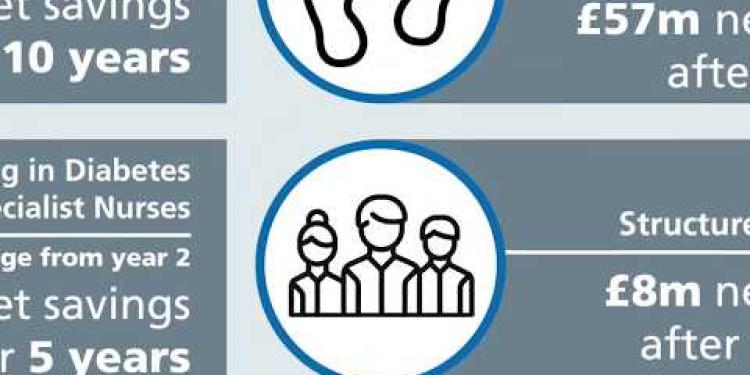
NHS Diabetes Prevention Programme; Preventing Type 2 and improving outcomes for people with diabetes
Have you found an error, or do you have a link or some information you would like to share? Please let us know using the form below.
- Ergsy carfully checks the information in the videos we provide here.
- Videos shown by Youtube after a video has completed, have NOT been reviewed by ERGSY.
- To view, click the arrow in centre of video.
- Most of the videos you find here will have subtitles and/or closed captions available.
- You may need to turn these on, and choose your preferred language.
- Go to the video you'd like to watch.
- If closed captions (CC) are available, settings will be visible on the bottom right of the video player.
- To turn on Captions, click settings .
- To turn off Captions, click settings again.
